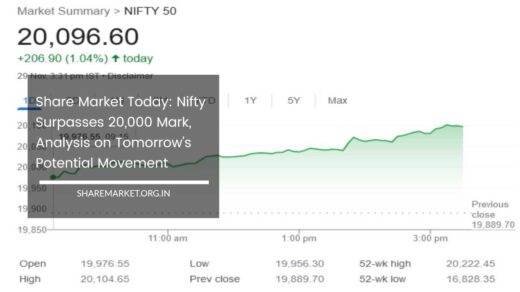Business Idea: Production of Fertilizer

Production of Fertilizer
If you are contemplating starting a business and are seeking a lucrative opportunity, we have a suggestion for you: a Fertilizer Manufacturing.
This venture holds immense potential and can make a significant contribution to the agricultural sector.
In recent years, the government has implemented various measures to support agriculture, resulting in increased crop production and advancements in farming practices.
As a testament to this progress, India successfully exported wheat worldwide last year. By aligning your business with this growing industry and providing essential support to farmers, you can establish a successful enterprise.
Previously, setting up a fertilizer manufacturing plant was seen as a venture exclusive to wealthy entrepreneurs. However, the dynamics have changed, and now the business can be initiated with a more accessible investment range of 25 to 30 lakh rupees.
If you lack the necessary capital, you have the option to secure a bank loan to fulfill your financial requirements.
Moreover, if your project demonstrates promise and you have 5 lakh rupees available, you can leverage loans and subsidies provided by the Central and State Governments to kickstart your business.
The profitability of a fertilizer manufacturing is promising as there is consistent and high demand for fertilizers in the market.
The majority of the production can be easily sold, and in certain instances, the urgent need for imports at significantly higher prices creates additional opportunities.
Consequently, setting up a fertilizer manufacturing can yield substantial benefits, particularly with the potential for an increased number of plants in the market.
To embark on this business venture, it is crucial to gather information about the specific schemes offered by your state or the Government of India.
Explore nearby plants, if possible, to gain insights into their operations, and conduct thorough research on small-scale fertilizer manufacturing plants online.
This information will provide valuable guidance and help you make informed decisions throughout the establishment process.
By establishing a fertilizer manufacturing plant, you not only have the opportunity to build a successful business but also contribute to the growth of the agricultural sector.
It is essential to stay updated with industry trends, adhere to regulatory requirements, and implement efficient production processes to thrive in this competitive field.
With careful planning and strategic execution, your fertilizer manufacturing plant can become a profitable and impactful business venture.
When considering a fertilizer manufacturing plant, here are key points to remember:
1. Market Research
Conduct thorough market research to understand the demand and competition in the fertilizer industry. Identify target customers, their needs, and market trends.
2. Business Plan
Develop a comprehensive business plan that outlines your objectives, strategies, financial projections, and operational details. This plan will guide your decision-making process and attract potential investors or lenders.
3. Regulatory Compliance
Familiarize yourself with the legal and regulatory requirements for establishing and operating a fertilizer manufacturing.
Obtain the necessary licenses and permits to ensure compliance with environmental, safety, and quality standards.
4. Production Process
Determine the type of fertilizers you will produce and select appropriate production methods and equipment. Establish efficient manufacturing processes that ensure consistent quality and maximize productivity.
5. Raw Materials
Identify reliable sources for raw materials, such as nitrogen, phosphorus, and potassium compounds, as well as other additives. Establish relationships with suppliers to ensure a steady and cost-effective supply chain.
6. Manufacturing Facilities
Set up a well-designed manufacturing facility with adequate space for production, storage, and packaging. Install necessary machinery, equipment, and infrastructure for efficient operations.
7. Quality Control
Implement stringent quality control measures to ensure the production of high-quality fertilizers. Establish testing procedures to monitor the chemical composition, nutrient content, and purity of the products.
8. Distribution and Sales
Develop a distribution network to reach farmers and other customers efficiently. Explore partnerships with distributors, retailers, or agricultural cooperatives to expand your market reach.
9. Research and Development
Continuously invest in research and development to improve product formulations, develop new fertilizer types, and stay updated with industry advancements. Innovation can give your business a competitive edge.
10. Environmental Sustainability
Promote sustainable practices in your manufacturing processes, such as energy efficiency, waste management, and responsible use of resources.
Emphasize eco-friendly and organic fertilizer options to meet the increasing demand for environmentally conscious products.
11. Marketing and Branding
Create a strong brand identity and develop effective marketing strategies to promote your fertilizers.
Highlight their benefits, unique features, and compatibility with various crops. Utilize online and offline marketing channels to reach your target audience.
12. Customer Support
Provide excellent customer support and after-sales service to build trust and loyalty among your customers. Offer technical assistance, product recommendations, and educational resources to help farmers optimize fertilizer usage.
13. Continuous Improvement
Regularly assess and improve your operations, production processes, and customer satisfaction. Stay updated with industry trends, adopt new technologies, and adapt to changing market dynamics.
Remember that running a fertilizer manufacturing requires meticulous planning, adherence to quality standards, and continuous innovation.
By focusing on these key points, you can establish a successful and sustainable business in the fertilizer industry.

















